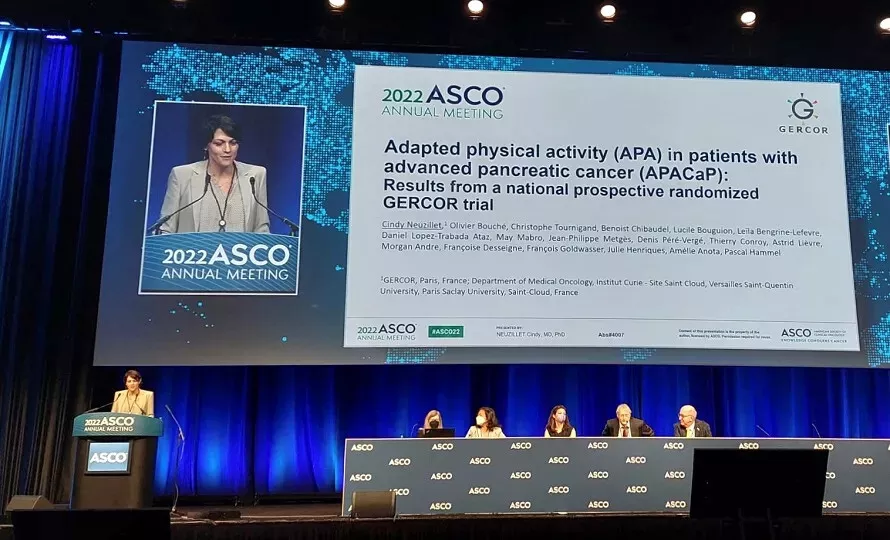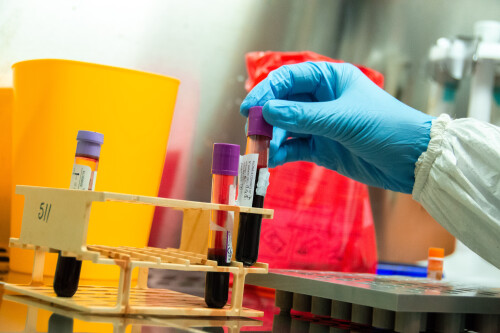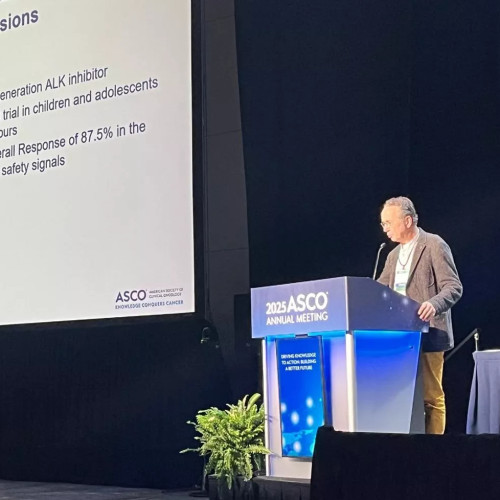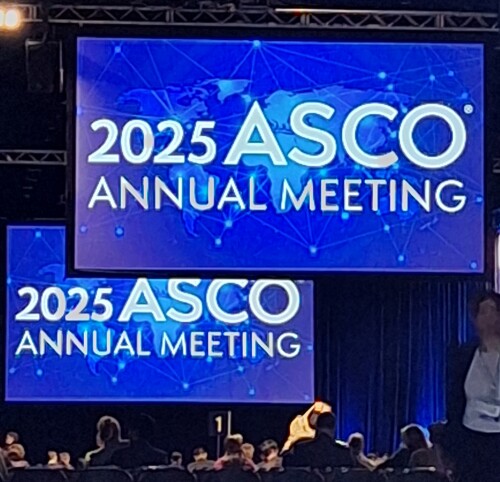On June 5, Dr. Cindy Neuzillet, gastroenterologist and digestive cancer specialist at Institut Curie, will present the results of the APACaP trial showing the effectiveness of adapted physical activity on several quality of life parameters for advanced pancreatic cancer patients.
As part of multisciplinary supportive care, adapted physical activity (APA) in patients receiving chemotherapy is a truly innovative treatment to tackle fatigue and sarcopenia (cancer-related muscle loss) and improve patients’ quality of life. Its beneficial effects have already been explored in patients treated for breast cancer with an adjuvant treatment. The data for digestive cancers, in particular advanced ones (inoperable), were until now more limited.
Dr. Cindy Neuzillet, a gastroenterologist and specialist in digestive cancers at Institut Curie, is presenting the final results on June 5 of a unique study that she coordinated with Prof. Pascal Hammel (AP-HP) for 10 years. Sponsored by GERCOR [1], this phase-3 trial, known as APACaP, evaluated the role of adapted physical activity among over 300 patients with advanced pancreatic cancer.
This presentation to ASCO is the culmination of a long project conducted in collaboration with Prof. Pascal Hammel. The study began in the 2010s, and was a pioneer in the field of adapted physical activity, which at the time was not well developed in French hospitals, recalls Dr. Cindy Neuzillet.
Assessing APA in terms of quality of life
This is the largest study ever conducted on the impact of adapted physical activity on the quality of life of patients with advanced pancreatic cancer. This randomized trial (one group with chemotherapy alone and one group with chemotherapy plus adapted physical activity) included over 300 patients. The patients from the adapted physical activity group were assessed through physical condition tests carried out with a physical activity professional (Mooven) to establish a personalized program of aerobic exercise (e.g. walking or cycling) and strength training (using elastic bands), in addition to routine daily activities.
They were then monitored weekly through video sessions for 16 weeks by these same physical activity professional, to readjust the program according to the patient’s progress. In addition, a support person of their choosing (family or friend) was identified to encourage patients to practice the exercises and maintain their motivation.
Although the main objective (three dimensions of quality of life at 16 weeks) as defined in the trial was not achieved, the results of the additional analyses presented at ASCO show a significant improvement in several dimensions of the quality of life of patients with pancreatic cancer: physical, emotional and cognitive functions, and certain symptoms (pain, nausea, appetite).
“Besides the beneficial effects on patient quality of life, we also show a trend (though not a significant one) towards improved overall survival, progression-free survival, and improved response to treatments,” highlights Dr. Neuzillet. "We also confirm that adapted physical activity is feasible and safe for these patients. There is just one conclusion, which is that adapted physical activity should be recommended to advanced pancreatic cancer patients.”
The APACaP study has conducted with the support of the A.R.CA.D. (Aide et Recherche en Cancérologie Digestive) Foundation.
|
Reference: Adapted physical activity in patients (Pts) with advanced pancreatic cancer (APACaP): Results from a prospective national randomized GERCOR trial. |
Institut Curie, a pioneer in adapted physical activity in France
A pioneer in adapted physical activity (APA) for 11 years, Institut Curie continues its efforts by developing its dedicated system to double the number of patients receiving these services within 2 years. The goals for 2022 include early awareness for cancer patients, training of oncologists, a well-rounded and personalized program, and assessment of the benefits of APA.
Within this context, Dr. Cindy Neuzillet has just launched a phase-II clinical trial that aims to assess the benefit of an individualized nutrition and adapted physical activity program in patients with advanced lung or digestive cancers at high nutritional risk.
“The aim of the APA sessions carried out under the supervision of a professional is two-fold: to reduce patient fatigue and maintain their muscle mass to optimize their quality of life and limit side effects from treatments. These sessions are in addition to regular daily physical activity,” she explains. “Furthermore, the nutritional programs involve ensuring that protein and calorie needs are met, since these are increased due to the disease and the treatments. Dietetic counseling is given along with oral nutritional supplements, and even artificial nutrition if needed.”
Over 270 patients will be taking part in this trial, conducted in 9 centers and coordinated by Dr. Neuzillet. They will follow this personalized program for two months. The main goal is to determine whether this has an impact on patients’ quality of life.
[1] Created in 1997, GERCOR is a non-profit entity whose mission is to improve treatments for cancer patients (with solid tumors) through innovative and multidisciplinary clinical research. An entirely independent clinical trial sponsor (Ph I ro III), it relies on a national network of 300 university hospital centers, cancer centers, general hospitals and private centers, as well as collaborations with other academic groups in France and abroad, coordinated by an operational team accredited by the French National Cancer Institute (INCa) and the French Ligue Nationale Contre le Cancer. http://www.gercor.com



